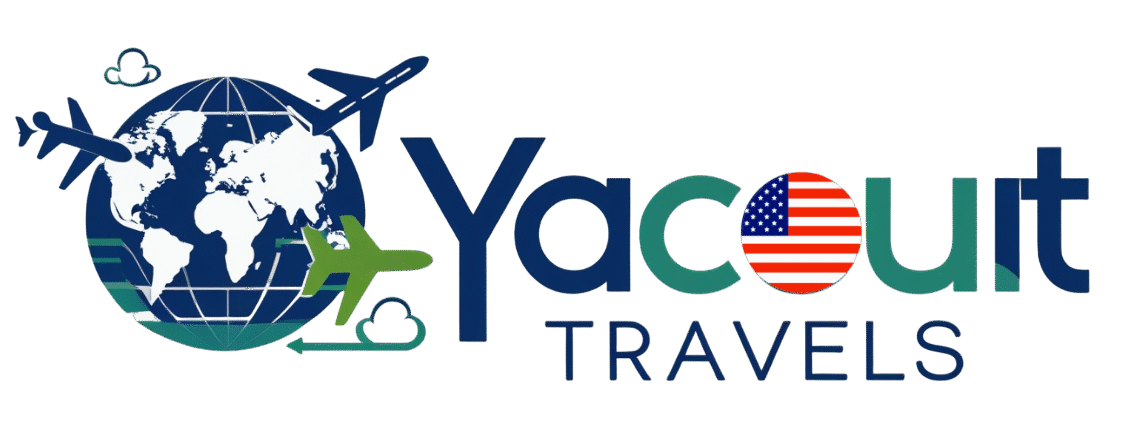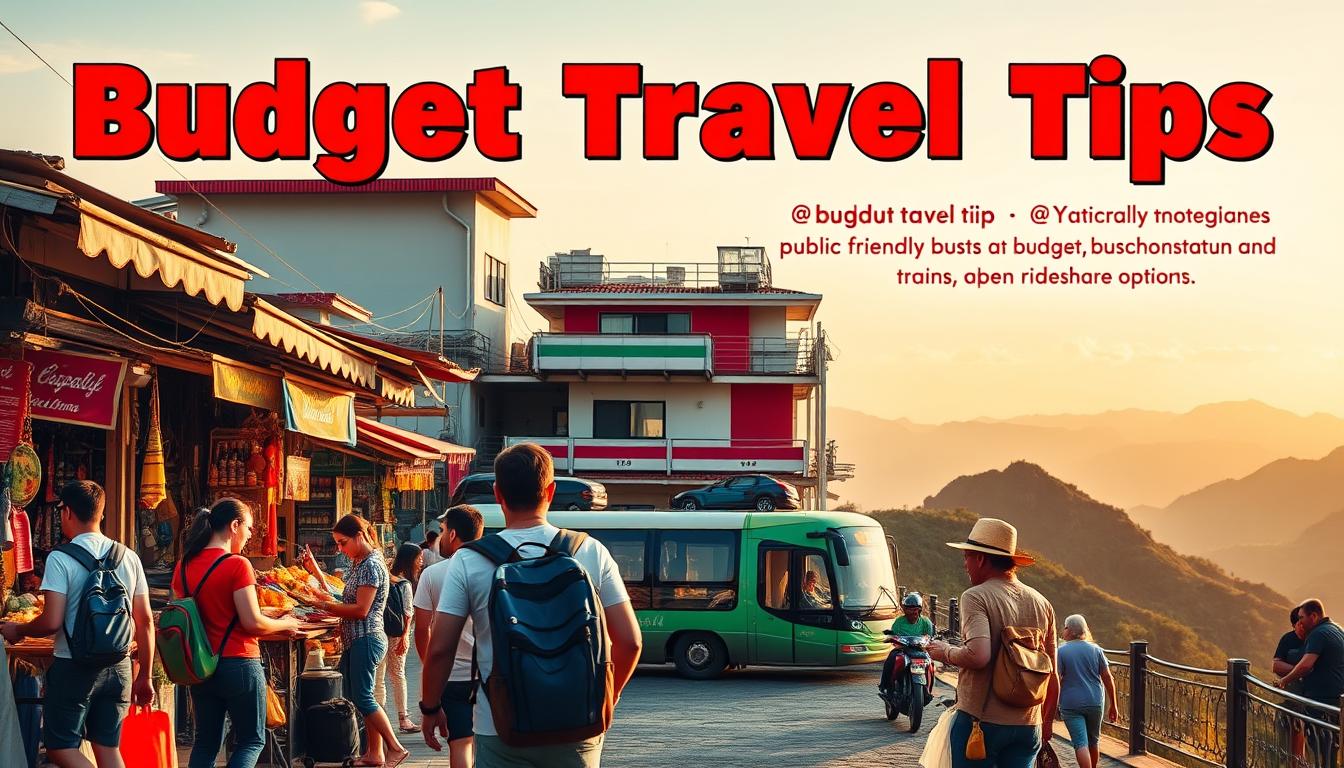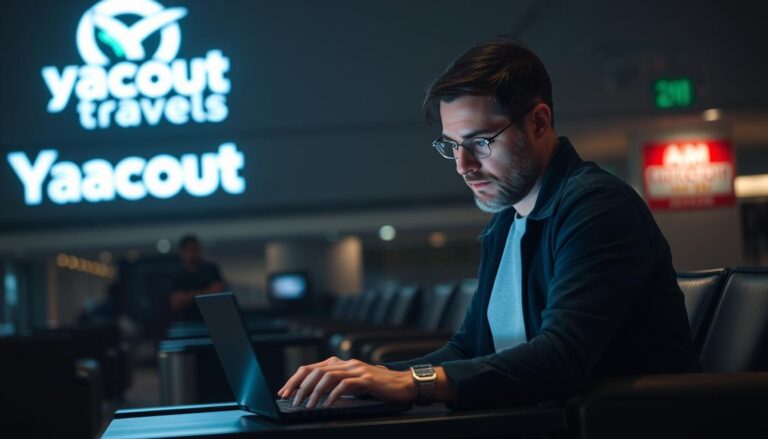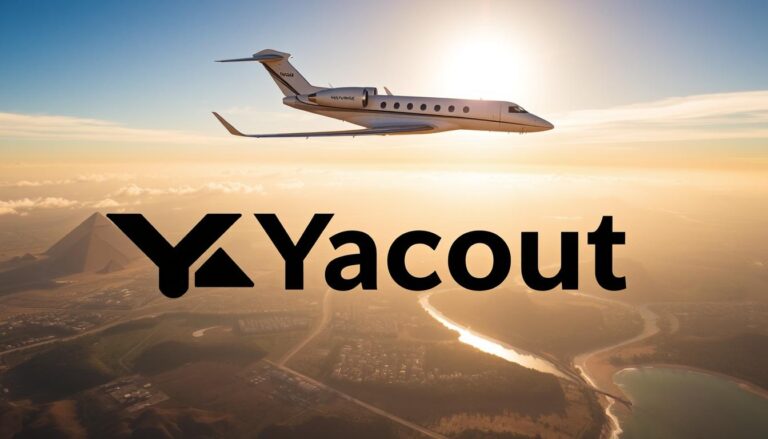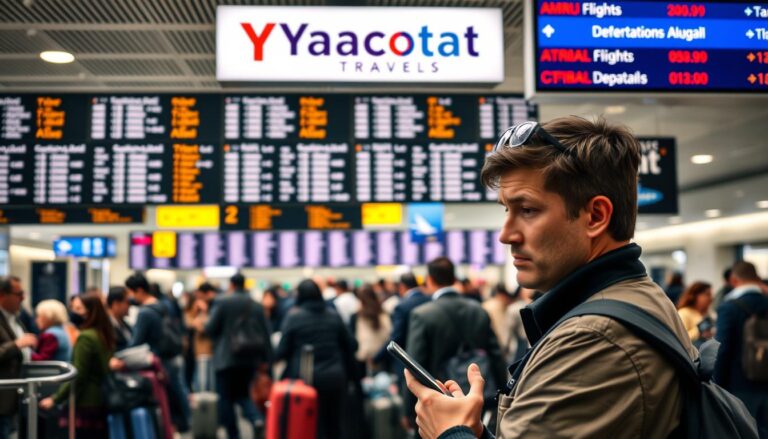How I Traveled for 6 Months on $1,000
What if you could explore the world for half a year with less money than many people spend on a single month’s rent? The idea of long-term adventure often feels locked behind a huge financial barrier.
This guide shatters that myth. I lived this reality, and I want to show you how it’s possible. You will learn the exact strategies that make extended journeys accessible.
The secret isn’t about sacrificing joy. It’s about making smart, informed choices that stretch your funds. This approach focuses on maximizing experiences, not just counting pennies.
You will discover a new way of thinking about your journey. It combines clever planning with a willingness to embrace different styles of exploration. This mindset opens up a world of possibility, regardless of your current financial situation.
Get ready to see real examples and specific numbers. This proves that with the right knowledge, you can plan your own incredible adventure. Let’s begin.
Introduction: Embracing Budget Travel
Seeing friends and influencers share their global adventures online can trigger both wanderlust and anxiety about affordability. These polished posts rarely show the financial planning behind the experiences.
Many people spend significantly more than necessary on their journeys. This happens because they lack awareness of smart alternatives.
| Aspect | Social Media Perception | Reality for Informed Travelers |
|---|---|---|
| Accommodation Costs | Luxury hotels only | Affordable hostels & local stays |
| Flight Prices | Always expensive | Flexible dates save money |
| Daily Expenses | Fine dining required | Local markets & street food |
You don’t need immense wealth to explore. The key is understanding that costs vary greatly based on your choices.
This approach focuses on maximizing experiences through strategic planning. It opens up possibilities you might have thought were out of reach.
The Allure of Budget Adventure
There’s a hidden truth behind those picture-perfect journeys that flood your social media feeds daily. Many people feel both inspired and intimidated by what they see online.
Overcoming the Fear of Travel Costs
You’re not alone if travel expenses make you nervous. This anxiety stops countless people from pursuing their dreams.
Education is your greatest weapon against cost fears. Learning smart strategies changes everything about how you view adventure.
How Social Media Fuels Your Wanderlust
Platforms create a fascinating paradox. They show amazing experiences while making you question affordability.
The reality differs greatly from curated posts. Most travelers use clever methods they don’t share publicly.
| Social Media Perception | Actual Budget Approach | Result for You |
|---|---|---|
| Luxury accommodations only | Creative lodging options | More money for experiences |
| Expensive restaurant meals | Local market exploration | Authentic cultural connection |
| Constant expensive activities | Free and low-cost adventures | Deeper destination immersion |
This approach offers incredible freedom. You can take more trips over longer time periods without financial stress.
Some of your most memorable experiences will come from resourceful adventures. They create authentic connections that luxury trips often miss.
Essential Budget Travel Tips
The most impactful savings on any adventure come from focusing on transportation and lodging first. These two areas offer the biggest return on your planning efforts.
When you master these fundamentals, you create a solid financial foundation. This approach lets you allocate more resources to experiences rather than basic costs.
Finding and Booking Cheap Flights
Airfare often represents your largest upfront expense. Smart booking strategies can slash hundreds from your trip budget.
You get the same service as expensive tickets but pay significantly less. The key is timing and flexibility with your departure dates.
Securing Inexpensive Accommodation
Lodging typically becomes your biggest ongoing cost after flights. Learning to save money here has a multiplier effect on your overall funds.
These strategies are straightforward and accessible to everyone. They’re not complicated tricks reserved for expert travelers.
Focusing on these areas first guarantees substantial savings. This approach provides financial freedom throughout your journey.
How to Find Cheap Flights
The digital era has revolutionized how we discover affordable airfare options. Modern tools make finding great deals easier than ever before.
You can access powerful search engines right from your phone or computer. These platforms scan hundreds of airlines simultaneously.
Using Skyscanner and Google Flights
Skyscanner stands out for including smaller carriers that major sites often miss. This is crucial when exploring new regions with unfamiliar airlines.
The “everywhere” feature lets you enter your departure airport and see the cheapest destinations worldwide. Results appear sorted by price, making comparison simple.
Google Flights allows simultaneous searches across multiple cities and dates. The Date Grid feature visually displays price differences across various travel days.
You can click “Track Prices” to receive automatic email alerts when fares change. This eliminates daily manual checking.
Leveraging Mobile Apps like Hopper
Hopper provides another layer of price monitoring through push notifications. The app predicts price trends and advises when to buy.
You can watch multiple routes simultaneously, including flights to nearby airports. This comprehensive approach ensures you never miss a drop.
| Tool | Best Feature | Price Tracking | Flexibility |
|---|---|---|---|
| Skyscanner | Includes budget airlines | Manual checking | “Everywhere” search |
| Google Flights | Date Grid visualization | Email alerts | Multiple city search |
| Hopper | Price prediction | Push notifications | Nearby airport options |
Combining these tools creates a powerful system for securing the best deals. You essentially automate the search process across multiple airlines.
This approach gives you a significant advantage in finding affordable airfare. The right strategy can save hundreds on your next flight.
Embracing Budget Airlines
The world of low-cost carriers operates on a unique business model that rewards savvy planning. These airlines have transformed how people move between cities and countries.
Carriers like RyanAir and EasyJet dominate European routes. Similar options exist across Asia and Latin America. Each follows the same fundamental approach.
Understanding Fees and Limitations
Budget airlines make profits through add-on charges rather than ticket prices. You must calculate the total cost before comparing options.
Traditional carriers now offer basic economy fares. These mimic budget airline restrictions. They exclude checked bags and flight changes.
Always read the fine print carefully. Unexpected fees can quickly erase your initial savings. Pay close attention to baggage policies.
Following specific rules ensures maximum value. Travel with only carry-on luggage when possible. Print boarding passes in advance.
View these carriers as a different category requiring special preparation. This mindset helps you avoid costly surprises. Your diligence pays off across multiple flights.
Expert Strategies for Budget-Friendly Lodging
Smart lodging decisions represent one of the most powerful ways to extend your adventure timeline. Your accommodation choice directly impacts how long you can explore.
Traditional hotels drain resources quickly. Understanding alternative options opens up incredible possibilities for longer stays.
Comparing Hostels, AirBnB, and House Sitting Options
Hostels provide exceptional value, especially for solo explorers. In Europe, you might pay around $20 per night during winter months.
Prices drop below $10 nightly in Latin America and Southeast Asia. Many include kitchens for preparing meals, saving additional money.
Airbnb offers a comfortable middle ground between hostels and traditional hotels. Renting someone’s apartment often costs less than a hotel room.
First-time users can save 15% on their initial booking. These properties are typically in residential neighborhoods for authentic local experiences.
House sitting and couch surfing represent the ultimate cost-saving approaches. You stay in someone’s home for free while they’re away.
This requires flexibility but eliminates accommodation expenses completely. It’s perfect for extended stays of up to a month.
| Option | Average Cost Per Night | Best For | Key Advantage |
|---|---|---|---|
| Hostels | $10-$34 | Solo travelers | Social atmosphere & kitchens |
| Airbnb | Varies by location | Groups & privacy seekers | Local neighborhood immersion |
| House Sitting | $0 | Extended stays | Complete cost elimination |
Choose based on your specific needs for each journey. Sometimes the social hostel environment works perfectly.
Other times, you’ll appreciate the privacy of an Airbnb or the cost savings of house sitting. Your options are more diverse than you might imagine.
Booking Strategies: Advance vs Last-Minute Deals
When it comes to securing your arrangements, timing plays a more critical role than most people realize. The approach you take can dramatically impact both your options and your expenses.
Understanding that flight and accommodation strategies differ completely is essential. What works perfectly for one can lead to disappointing results for the other.
Pros and Cons of Early Reservations
For lodging, early booking is almost always your best approach. The most desirable places with great value disappear quickly from availability.
When you reserve your accommodation well ahead of time, you secure the best options. Most properties offer free cancellation within 24-48 hours, giving you flexibility without risk.
Flight booking requires more strategic timing. The sweet spot typically falls 6-8 weeks before domestic trips and up to 12 weeks for international journeys.
Holiday arrangements demand even earlier planning. For Thanksgiving flights, start monitoring in August and be ready to book when prices drop in September.
Tools like Google Flights help you track changes over time. They notify you about optimal booking windows for your specific dates.
Think of advance reservations as securing choices rather than limiting flexibility. You’re claiming the best deals while they’re available with protection through cancellation policies.
Last-minute approaches only work if you have complete freedom with dates, destinations, and standards. This level of flexibility is rare for most people planning their trip.
Choosing Affordable Destinations
Selecting the right location is more than just picking a spot on the map—it’s a strategic financial decision that impacts every aspect of your adventure. Your choice of destination determines costs for housing, meals, transportation, and activities.

Some countries naturally offer better value than their neighbors. Choosing Portugal over Spain provides similar cultural experiences at a fraction of the cost. Entire regions like Southeast Asia stretch your funds incredibly far.
Low-Cost Regions and Off-Peak Travel
Timing your trip during shoulder season delivers the best of both worlds. You get excellent weather with dramatically lower prices. Visiting Croatia in May instead of July can cut attraction fees in half.
Off-season exploration multiplies your savings significantly. A winter journey to Iceland saved $100 daily on rentals alone. The flight costs were also much cheaper during this period.
This approach is particularly valuable for extended adventures. Daily savings on accommodation and food compound over weeks. You’re not settling for less—many affordable places offer richer cultural experiences.
Tips for Navigating Foreign Transaction Fees
Many travelers overlook a hidden expense that quietly drains their funds during international journeys. Standard banking cards typically add a 3% charge on every purchase abroad. Debit cards often include an additional $5 fee for each ATM withdrawal.
These costs accumulate surprisingly fast during extended adventures. A week-long journey could easily lose $100-300 to unnecessary banking charges. That’s money that could fund extra days of exploration instead.
Using Fee-less Cards and ATMs
Opening a travel rewards credit card with zero foreign transaction fees before your trip is one of the simplest financial moves you can make. This requires no behavior change during your adventure yet delivers immediate savings.
For cash needs, Charles Schwab’s checking account offers a standout solution. Their debit card reimburses all ATM fees worldwide, making it the gold standard for international explorers.
Calculate what you’d pay with your current cards on an upcoming journey. Seeing the actual dollar amount provides powerful motivation to switch to fee-free options.
The beauty of this strategy is its long-term value. Once you set up these financial tools, they benefit every overseas adventure for years to come.
Saving Up for Your Budget Trip
Your daily routine holds the key to unlocking your next great adventure. Small changes to your spending habits can accumulate into significant funds for your journey.
Cutting Daily Expenses like Coffee and Dining Out
That daily coffee shop visit costs more than you realize. Three $5 drinks per week equals $60 monthly—enough for a round-trip European flight.
Making coffee at home instead funds your adventure one cup at a time. Similarly, weekly $20 brunches add up to $1,040 annually that could finance your entire trip.
Incremental Saving Strategies to Reach Your Goal
Meal prepping every Sunday ensures you have delicious food waiting after work. This simple habit prevents expensive takeout and saves hundreds each month.
The magic happens when you combine multiple small savings. Cutting $60 on coffee and $150 on meals totals $1,260 over six months. This amount can fund weeks of exploration in Europe.
| Expense Category | Weekly Cost | Monthly Savings | 6-Month Total |
|---|---|---|---|
| Coffee Shop Visits | $15 | $60 | $360 |
| Restaurant Meals | $40 | $160 | $960 |
| Combined Savings | $55 | $220 | $1,320 |
Start saving well before your departure date. Slow, steady accumulation through daily choices is more sustainable than drastic last-minute cuts.
Insider Advice for Budget Travelers
Learning from experienced adventurers who prioritize meaningful experiences over lavish spending can revolutionize your approach. These seasoned explorers have refined their methods through countless journeys.
Learning from Industry Experts and Frugal Travelers
Elaine Glusac has shared wisdom about exploration for over twenty-five years. Her Frugal Traveler column demonstrates how mindful spending enhances rather than limits your adventures.
When you embrace affordable approaches, you connect with local communities in authentic ways. Luxury resorts often create barriers between visitors and the destination.
Budget-conscious exploration facilitates genuine cultural exchange. You eat where residents dine and use transportation systems they rely on daily.
Some of the most memorable trips involve creative constraints. Consider vineyard hopping using only public transit or discovering affordable cruise options.
The wisdom from these experienced people isn’t about deprivation. It’s about strategic choices that maximize meaningful experiences while minimizing unnecessary expenditure.
Learning from those who’ve perfected their methods over many years helps you avoid common mistakes. Their insights accelerate your own education in smart exploration.
Utilizing Travel Tools and Alerts
The days of manually checking airline websites for hours are over thanks to smart notification systems. These digital assistants monitor flight prices around the clock, sending alerts directly to your inbox.

You save valuable time while ensuring you never miss a great deal. Setting up these tools takes just minutes but pays off significantly.
Setting Up Notifications on Google Flights, Kayak, and Going.com
Google Flights lets you track specific routes after filtering your search. The system emails you automatically when prices change for your desired flight.
Kayak provides an advice monitor that analyzes historical data. It tells you whether to book immediately or wait for better booking opportunities.
Going.com monitors major airlines for dramatic price drops from your home airport. Their free version sends deals straight to your inbox.
These incredible offers often disappear within a day, so quick action is essential. The site recently featured round-trip first class flights to Toronto for $300.
Using multiple platforms creates a comprehensive alert system. You catch deals from different airlines and booking algorithms simultaneously.
Direct Booking vs Third-Party Platforms
Where you book your flights and hotels can make a huge difference when plans change unexpectedly. Third-party sites might seem convenient, but they add a layer of complexity when you need help.
Booking directly gives you more control. You deal with the airline or hotel staff directly, which simplifies everything.
Benefits of Booking Directly with Airlines and Hotels
When you book your flight directly with the airline, cancellations and refunds are much simpler. There’s no middleman to contact. This saves time and stress.
The same principle applies to hotels. Booking directly often means better service and easier modifications. You might even get special perks.
Here are the key advantages of direct booking:
- More control over your reservation and changes
- Simpler process for cancellations and refunds
- Direct communication with the provider for any issues
- Exclusive offers available only through their newsletters
Sign up for airline and hotel newsletters. Companies often send special deals to subscribers that you won’t find elsewhere.
Check hotel availability calendars to find the cheapest dates. You can plan your trip around these rates to save money. Most hotels allow free cancellation 24-48 hours in advance.
Think of direct booking as an insurance policy. It’s the best way to ensure a smooth experience if your plans shift.
Maximizing Rewards and Credit Card Perks
Strategic credit card usage unlocks benefits that transform how you approach flight bookings. The right plastic in your pocket can eliminate annoying fees and upgrade your entire experience.
Choosing the Right Travel Rewards Cards
Airline-branded cards provide complimentary checked bags and seat assignments. The typical $95 annual fee pays for itself within one or two trips through saved baggage fees alone.
If you live near an airline hub, focus your strategy on that carrier’s card. This maximizes value from the partnership. You get priority boarding and other valuable perks.
When comparing budget carriers with traditional airlines, add baggage fees to your calculation. Checking even one bag can eliminate all savings. Budget airlines often have infrequent service too.
View your travel credit card as a tool that pays you to use it. The perks exceed the annual fee many times over when used strategically. Combine this with airline loyalty programs for maximum benefit.
Your spending earns miles that can be redeemed for free flights after accumulating over years. A slightly more expensive ticket on your card’s airline might actually be cheaper overall.
Planning for Different Travel Scenarios
Whether exploring nearby cities or distant countries, your strategy needs careful adjustment. The approach that works for solo adventures won’t suit family journeys.
Your planning changes based on who joins you and your destination choice. Each scenario requires unique considerations to maximize value.
Navigating Domestic vs International Travel Variations
Domestic trips offer flexibility with shorter planning windows. You can often find great deals 6-8 weeks before departure.
International journeys demand earlier preparation. Booking flights up to 12 weeks ahead ensures better prices.
Family adventures require different thinking. Renting properties with kitchens becomes essential rather than optional. Eating out with children quickly drains resources.
Consider sustainable options like trains for regional exploration. They often provide better value than short flights.
| Aspect | Domestic Travel | International Travel |
|---|---|---|
| Planning Timeline | 6-8 weeks advance | Up to 12 weeks advance |
| Transportation Options | Trains, driving, flights | Primarily flights |
| Accommodation Focus | Flexible options | Longer stays per destination |
| Packing Considerations | Can pack heavier | Lightweight essentials |
The end goal is matching your approach to your specific situation. What works for one person won’t work for another, and that’s perfectly fine.
Conclusion
You now hold the blueprint for turning your travel aspirations into reality without breaking the bank. Extended journeys on a tight budget aren’t fantasy—they’re the result of applying proven strategies consistently across every aspect of your trip.
The most important insight is that smart exploration isn’t about deprivation. It’s about making informed choices that prioritize experiences over unnecessary expenses. Many people spend triple what you will on similar trips simply because they lack this knowledge.
You can start implementing these ways immediately. Set up price alerts, research affordable destinations, and begin your savings plan today. Remember the saying: if you’d started when you first thought about it, you’d already be exploring.
Your adventure dreams are closer than you think. With the strategies you’ve learned—accumulated over years by experienced explorers—you could be on your next journey within months. The key is taking action now rather than waiting for the perfect time.
